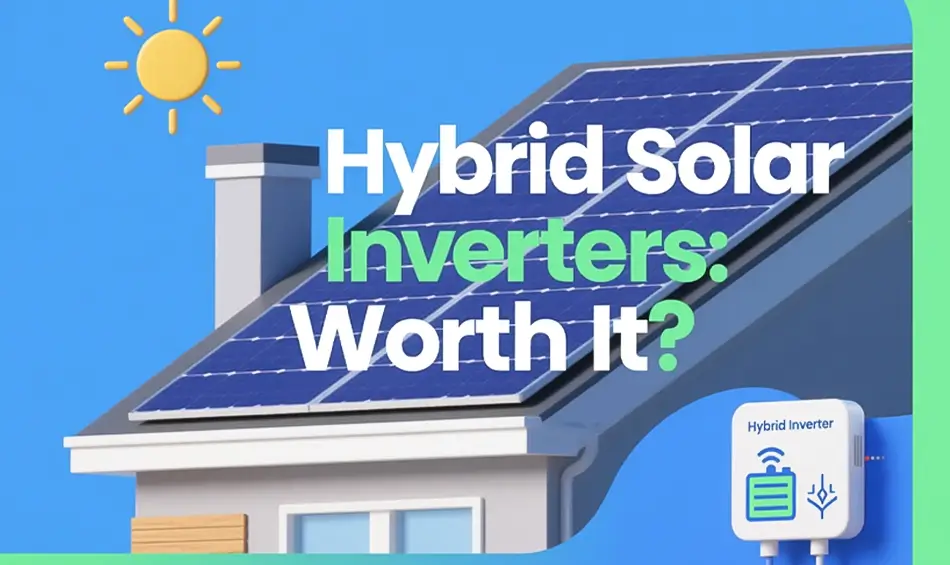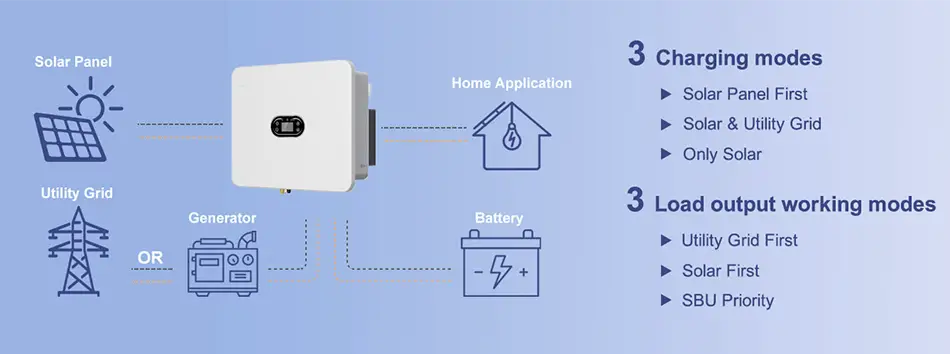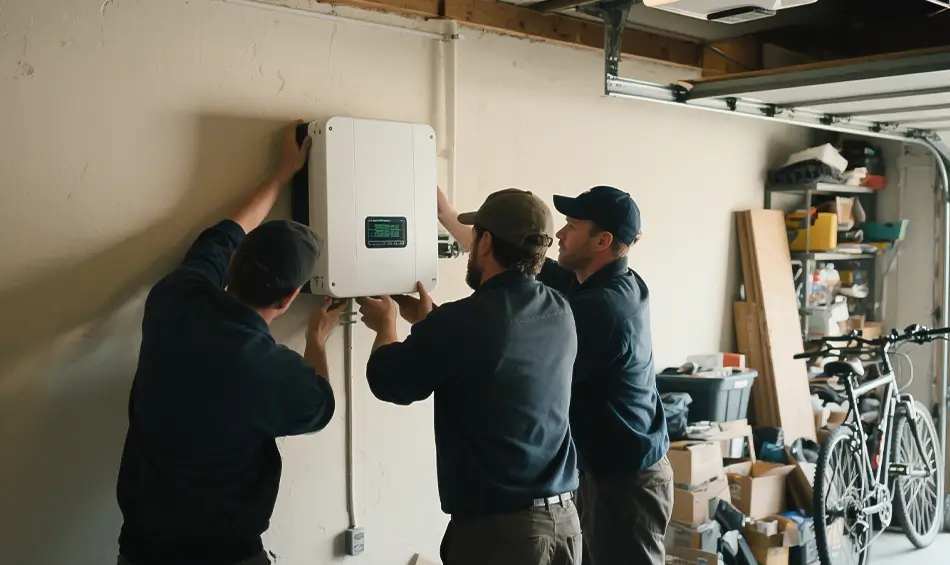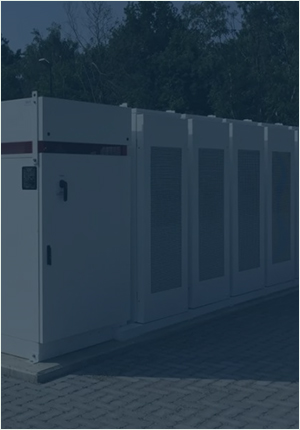2025-07-18 Author : CXJPowers
As solar technology continues to evolve, Hybrid Solar Inverters have become a popular solution for users seeking flexibility, energy independence, and intelligent energy management. But like any piece of technology, they come with their own set of advantages and disadvantages.

A Hybrid Solar Inverter is an advanced energy conversion device that combines the features of both grid-tied and off-grid inverters. It allows solar panels to power your home or business while storing excess energy in batteries and optionally exporting to the grid. This dual functionality gives users more control over their power usage, especially during grid outages or peak demand times.

1. Energy Independence
Hybrid inverters allow you to store excess solar power in batteries, giving you backup energy during blackouts or cloudy days. You're less reliant on the grid, especially in remote or unstable power regions.
2. Smart Power Management
Many hybrid inverters come with built-in energy management systems. They automatically decide when to use solar power, battery power, or switch to the grid—maximizing efficiency and lowering electricity costs.
3. Seamless Grid Interaction
Unlike off-grid systems, hybrid inverters maintain a connection with the utility grid. This enables net metering (where available) and allows for smooth transitions between solar, battery, and grid power.
4. Scalability and Flexibility
Hybrid systems are easy to scale. Start small and expand later with more solar panels or additional batteries as your energy needs grow.
5. Future-Proofing
As energy regulations evolve and battery technology improves, hybrid inverters can adapt to newer technologies like time-of-use optimization or EV charging integration.
1. Higher Initial Cost
Hybrid inverters are generally more expensive than basic on-grid models due to their additional features and battery integration capability.
2. Complex Installation
The setup can be more technically involved, often requiring experienced installers to ensure proper configuration and safety.
3. Battery Dependency
While batteries provide great benefits, they also add cost and maintenance requirements. Their lifespan is limited, and replacement can be expensive.
4. Limited Return Without Storage
If you don’t plan to use battery storage, the hybrid inverter’s full potential might be underutilized. In that case, a standard Inverter may be more economical.
5. Potential Efficiency Loss
In some configurations, energy has to pass through multiple conversion stages—solar DC to AC, AC to battery DC, and back to AC—which may cause minor losses in efficiency.

Choosing the right inverter for your solar power system isn’t just a technical decision—it’s a strategic one that depends on your lifestyle, energy goals, and long-term expectations.
If energy independence is a top priority—for example, if you live in an area with frequent power outages or an unstable grid—a hybrid solar inverter paired with battery storage is almost a no-brainer. It allows you to keep the lights on, stay connected, and even power essential appliances during blackouts, all while reducing your reliance on utility companies.
For eco-conscious homeowners or businesses, hybrid systems offer another major advantage: they optimize solar usage and reduce carbon emissions by minimizing grid consumption. The ability to store and manage energy smartly means you waste less power and maximize return on every ray of sunshine your panels capture.
That said, hybrid inverters are not a universal fit. If your primary objective is to minimize upfront cost or you live in a region with cheap, stable electricity and no support for net metering or battery incentives, a standard grid-tied inverter system might make more financial sense. In such cases, over-investing in hybrid capabilities without planning to install batteries could be like buying a sports car and never taking it out of first gear.
Another thing to consider is future-proofing. Even if you don't install batteries immediately, investing in a hybrid-ready system gives you the flexibility to scale up when energy prices rise, policies change, or your energy consumption grows—say, with the addition of an EV, heat pump, or home office.
Still unsure? The smartest move is to consult a solar professional who can assess your specific energy usage, location, budget, and goals. Or, better yet, browse our full line of advanced, reliable solar inverters to explore your options.
In the rapidly evolving world of renewable energy, a hybrid solar inverter is more than just hardware—it's a step toward energy autonomy, cost savings, and a cleaner planet.
-------------------
Let me know if you need further adjustments or additional details! We support OEM/ODM. Contact us now!
CXJPowers provides one-stop customized portable power supplies, LiFePO4/ternary lithium battery packs, emergency energy storage solutions, and supports OEM&ODM services.



